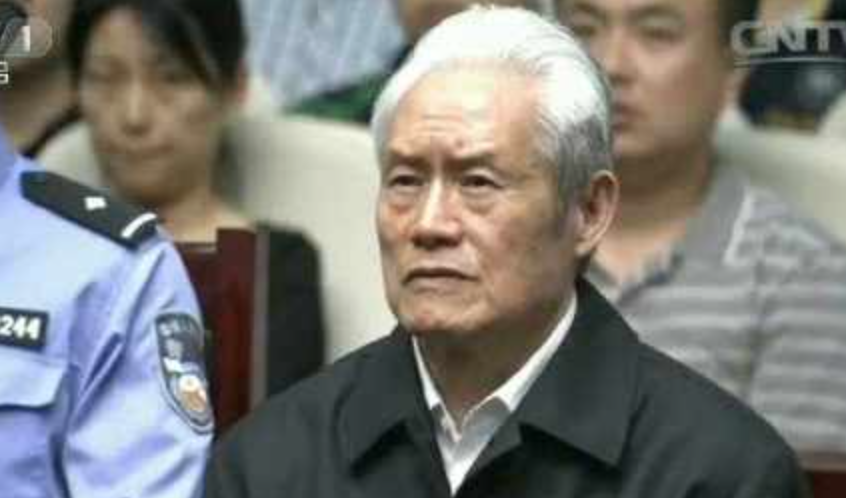Sensitive Words highlights keywords that are blocked from Sina Weibo search results. CDT independently tests the keywords before posting them, but some searches later become accessible again. We welcome readers to contribute to this project so that we can include the most up-to-date information. Use the form at the bottom of this post to help us crowd source sensitive words. You can also browse our archive of sensitive words.
The announcement of the corruption investigation into former security chief Zhou Yongkang last July unleashed a flood of coverage in China’s domestic media. By comparison, the news last week of his trial and sentencing to life in prison was heavily muted. This orchestrated hush extended to social media, with a number of related search terms blocked on Sina Weibo as of June 19th. These include Zhou’s name (周永康) paired with inspect (视察); death sentence (死刑); shuanggui (双规) (the Party’s notorious internal investigation system); arrested (被抓); and Jiang Jiemin (蒋洁敏), a prominent former Zhou ally who came under investigation for corruption in 2013 and faced a one-day trial in April.
Many observers have tried to determine what the sentencing and its low-key presentation mean for Xi Jinping’s signature anti-corruption campaign, now that its greatest trophy has likely been claimed. That the trial was held in secret despite earlier promises may indicate that Xi was forced to take a more cautious approach than planned in the face of internal opposition. Editor and commentator Hu Ping argued that muted messaging when the verdict was finally announced also implies that the crackdown’s opponents have gained the upper hand. State media have recently quoted a statement by senior disciplinary official Huang Shuxian that the focus will now shift to lower level “flies,” although Russell Leigh Moses at China Real Time suggested that it could instead pivot “to take on figures closely linked to Xi’s predecessors, the leaders who supported Zhou’s rise and helped sustain it – former presidents Jiang Zemin and Hu Jintao.”
One possible target is education minister Yuan Guiren, who warned earlier this year against Western influence in university textbooks. According to rumor, his own influence in contracts for school textbooks has helped land him and his son, general manager of Beijing Publishing Group’s educational materials division, under investigation. Searches for Minister Yuan (袁部长) are currently blocked.
Meanwhile, American authorities are also on the hunt. U.S. banking firm JPMorgan Chase has repeatedly come under scrutiny in recent years for its close ties to China’s ruling elites. A leaked censorship directive in February ordered the deletion of reports that it hired Chinese commerce minister Gao Hucheng’s son despite seeing him as irresponsible and underqualified. JPMorgan and several other banks are now embroiled in an investigation into possible violations of the Foreign Corrupt Practices Act: last month, the U.S. Securities and Exchange Commission subpoenaed records of the firm’s communications regarding 35 Chinese officials, including anti-corruption chief Wang Qishan. Wang is not believed to be implicated, but even the hint of association has prompted blocks on searches for Wang Qishan (王岐山) and JPMorgan (摩根), JPMorgan (摩根) and CCDI (中纪委), and SEC (美国证券交易委员会) and communication records (通信记录).
Have a sensitive word tip? Submit it through this form:








